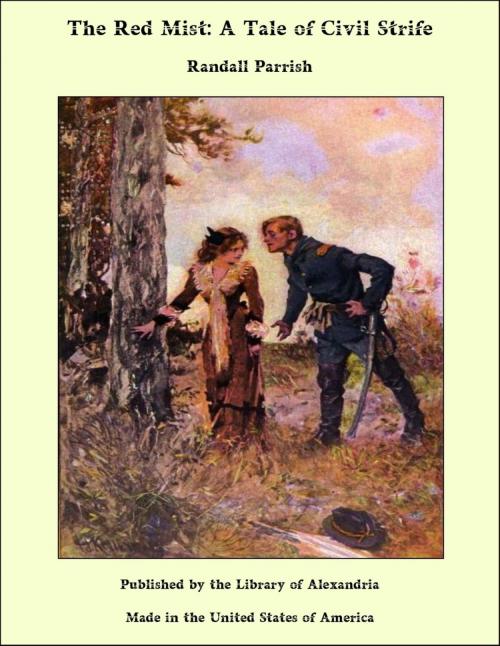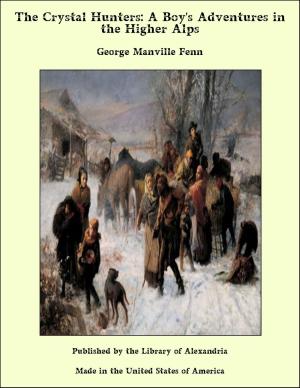The Red Mist: A Tale of Civil Strife
Nonfiction, Religion & Spirituality, New Age, History, Fiction & Literature| Author: | Randall Parrish | ISBN: | 9781465614070 |
| Publisher: | Library of Alexandria | Publication: | March 8, 2015 |
| Imprint: | Language: | English |
| Author: | Randall Parrish |
| ISBN: | 9781465614070 |
| Publisher: | Library of Alexandria |
| Publication: | March 8, 2015 |
| Imprint: | |
| Language: | English |
IT WAS already growing dusk when the Staunton Battery of Horse Artillery returned wearily to camp after hours of hard field drill, the men ever conscious that no evolution, however trivial, was being overlooked by "Stonewall" Jackson, sitting astride his sorrel on a little eminence to the left, his stern face unrelieved by even the semblance of a smile. He would criticise without mercy, but never praise, and the artillerymen insensibly stiffened to the work, as eager to do well as though they were in action. The time was early spring, some remnants of snow still clinging to the hollows out of reach of the warming sun, and a chill wind blowing through the passes of the western mountains. The comparative idleness of the past winter months, given over to foraging and drill, together with the comforts of a permanent camp, had engendered forgetfulness of the hardships of the last campaign, and left the men eager to confront the dangers of the future. In no heart was there doubt of the final result—the Army of the Valley pinned its faith on "Old Jack." They were soldiers—veterans already—anxious for active service; their depleted ranks filled up once more with recruits, well drilled and efficient through constant training; and while many remembered with regret the old faces—the dead, the wounded, the missing—they nevertheless realized that never before were they in sterner mood or better prepared for grim fighting. The winter quarters of the Staunton Artillery were slightly off the main road, back within the shelter of a grove of oak trees, and I remained for some time overseeing the care of the horses before approaching the hut where the non-commissioned officers had mess. We were all of us still at the table, discussing the incidents of the drill, when a lieutenant appeared suddenly in the doorway, and glanced inquiringly about the room, scarcely able to distinguish our faces in the dull light of the lantern which alone illumined the interior.
IT WAS already growing dusk when the Staunton Battery of Horse Artillery returned wearily to camp after hours of hard field drill, the men ever conscious that no evolution, however trivial, was being overlooked by "Stonewall" Jackson, sitting astride his sorrel on a little eminence to the left, his stern face unrelieved by even the semblance of a smile. He would criticise without mercy, but never praise, and the artillerymen insensibly stiffened to the work, as eager to do well as though they were in action. The time was early spring, some remnants of snow still clinging to the hollows out of reach of the warming sun, and a chill wind blowing through the passes of the western mountains. The comparative idleness of the past winter months, given over to foraging and drill, together with the comforts of a permanent camp, had engendered forgetfulness of the hardships of the last campaign, and left the men eager to confront the dangers of the future. In no heart was there doubt of the final result—the Army of the Valley pinned its faith on "Old Jack." They were soldiers—veterans already—anxious for active service; their depleted ranks filled up once more with recruits, well drilled and efficient through constant training; and while many remembered with regret the old faces—the dead, the wounded, the missing—they nevertheless realized that never before were they in sterner mood or better prepared for grim fighting. The winter quarters of the Staunton Artillery were slightly off the main road, back within the shelter of a grove of oak trees, and I remained for some time overseeing the care of the horses before approaching the hut where the non-commissioned officers had mess. We were all of us still at the table, discussing the incidents of the drill, when a lieutenant appeared suddenly in the doorway, and glanced inquiringly about the room, scarcely able to distinguish our faces in the dull light of the lantern which alone illumined the interior.















